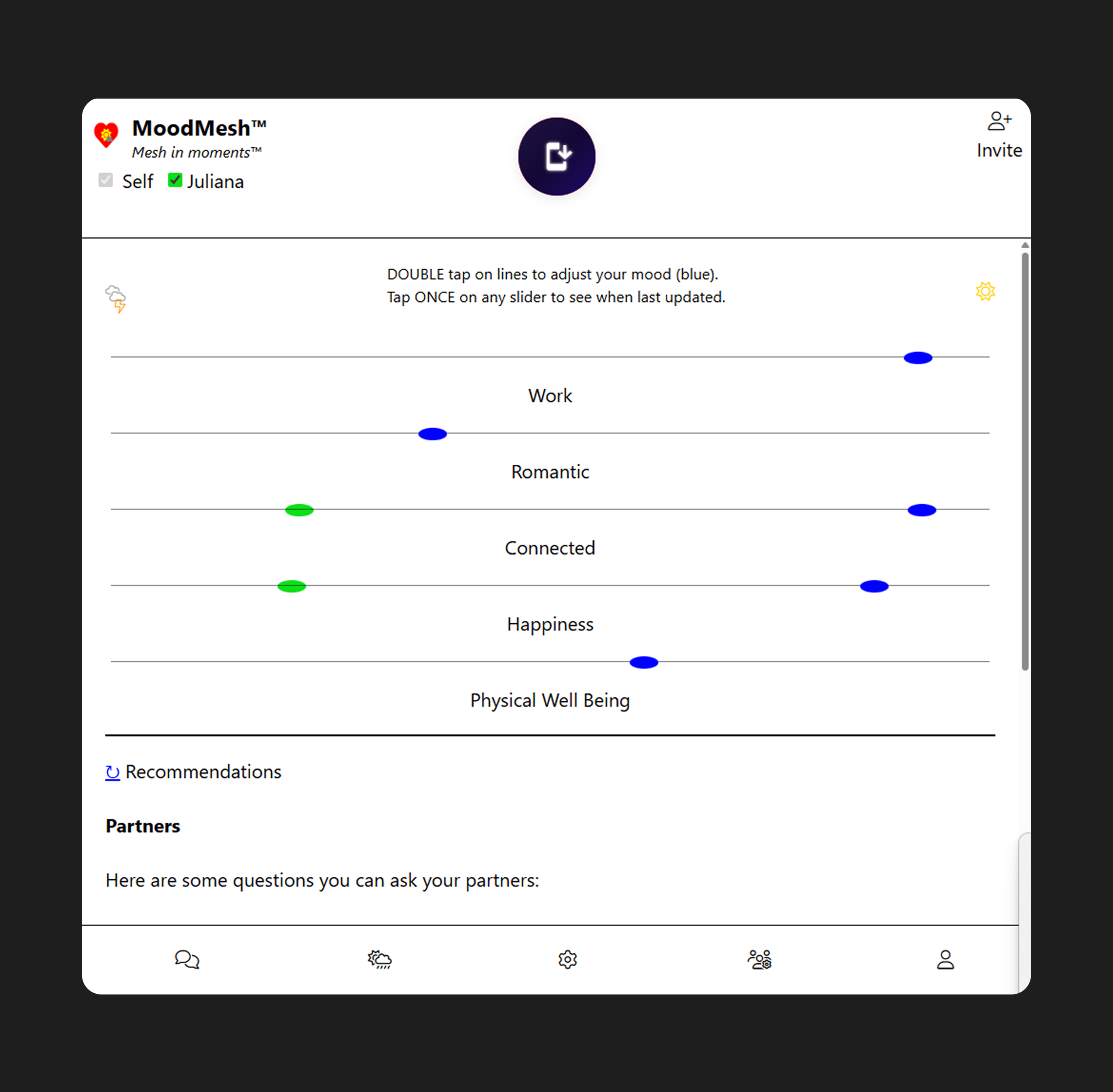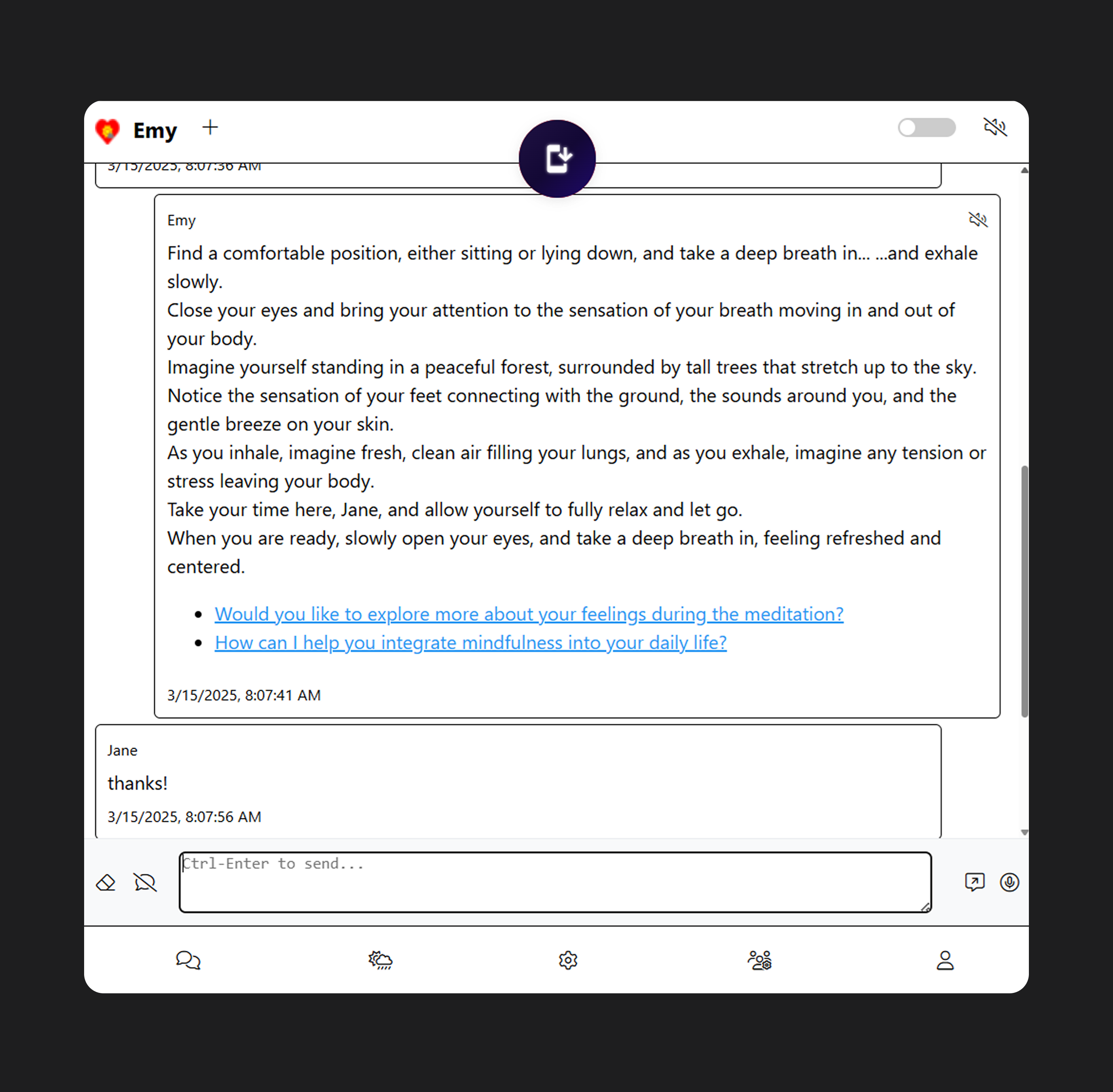MoodMesh is a wellness technology company dedicated to helping users track, understand, and improve their emotional well-being and share their emotions with partners and friends. By combining psychology and data science, MoodMesh offers tools that empower users to identify patterns in their mental health and take proactive steps toward emotional balance. This case study covers how MoodMesh integrated Speechify Text to Speechify API to make emotional care more intuitive and available anytime, anywhere.
About MoodMesh
MoodMesh was born from a shared vision among three friends—a duo passionate about emotionally tuned communication and a third deeply invested in the potential of empathetic AI. What began as a simple physical abacus, where the position of beads represented emotional states across life’s many dimensions, soon evolved into something more ambitious. Following 18 months of intensive research into empathy and emotion in artificial intelligence, the team launched a mobile-enabled web application that allows users to quickly track and share their moods while receiving personalized communication advice, journaling prompts, guided meditations, and tools for compassionate conversations. MoodMesh’s mission is simple but profound: to help people connect more deeply with themselves and others through emotionally attuned technology.


The Challenge
MoodMesh’s goal to foster emotional insight and human connection posed a unique technical challenge. Many users found that reading or typing text disrupted their emotional flow. For meditation in particular, one of MoodMesh’s core features, text on a screen, simply wasn’t immersive or relaxing. Meanwhile, standard browser-based text to speech and mobile SDKs lacked nuance. Robotic or flat audio could actually diminish the emotional tone of the user experience. MoodMesh needed a solution that could deliver speech with emotional authenticity—something capable of matching the warmth and rhythm of a real human voice in real time, across use cases from guided meditations to therapeutic conversation aids.
The Solution: Speechify Text to Speech API
By using Speechify Text to Speech API, MoodMesh can deliver emotionally nuanced speech with the appropriate tone, volume, cadence, and speed for both meditations and compassionate conversations. With its robust SSML (Speech Synthesis Markup Language) support and emotionally rich voice library, MoodMesh could move beyond robotic speech and into truly expressive vocal delivery. By integrating Speechify’s API, the team was able to adjust tone, cadence, volume, and speech speed for each use case, creating a much more emotionally aligned experience for users.
MoodMesh’s Favorite Speechify Features
According to the MoodMesh team, Speechify Text to Speech API’s simplicity, flexibility, security, and affordability made it stand out, but the SSML support was the game-changer. Many real-time speech solutions lacked sufficient control over prosody (the intonation and rhythm of speech), resulting in voice output that felt unnatural or emotionally off-key.
Speechify Text to Speech API’s SSML enhancements—including support for emotional tones such as cheerful, warm, and bright—enabled MoodMesh to match vocal delivery to the user’s emotional context. This meant that even when users were feeling low, the app could respond with a supportive, empathetic tone. Speechify Text to Speech API also allowed MoodMesh to apply different emotions to various offerings rather than being stuck with one tone for all listening experiences on its app.
Impact of MoodMesh and Speechify’s Partnership
The integration of Speechify Text to Speech API into MoodMesh has significantly enhanced user engagement and satisfaction. Meditations now feel soothing and personalized. Conversation suggestions are read aloud in a tone that feels aligned with the user’s emotional needs, not dictated by a default voice. This emotionally congruent audio support has deepened the app’s capacity to serve users going through stress, grief, anxiety, or joy—creating a much more human-like digital interaction.
Conclusion
MoodMesh’s use of Speechify’s SSML-enhanced API represents a powerful case of how emotionally intelligent design and voice technology can come together. Speechify Text to Speech API didn’t just add a voice to MoodMesh—it added the right voice, one that’s warm, dynamic, and deeply human in tone. As MoodMesh continues to explore the future of AI and empathy, Speechify remains an essential partner in making digital compassion feel real.
To learn more about how MoodMesh uses AI to help people align emotionally and better connect with others, visit moodmesh.com.





